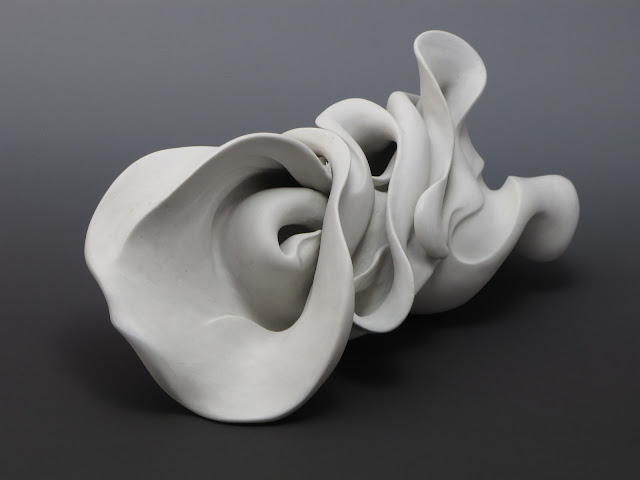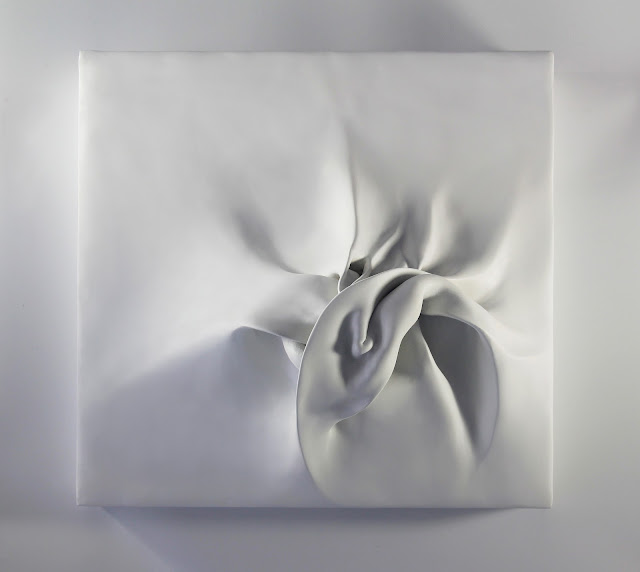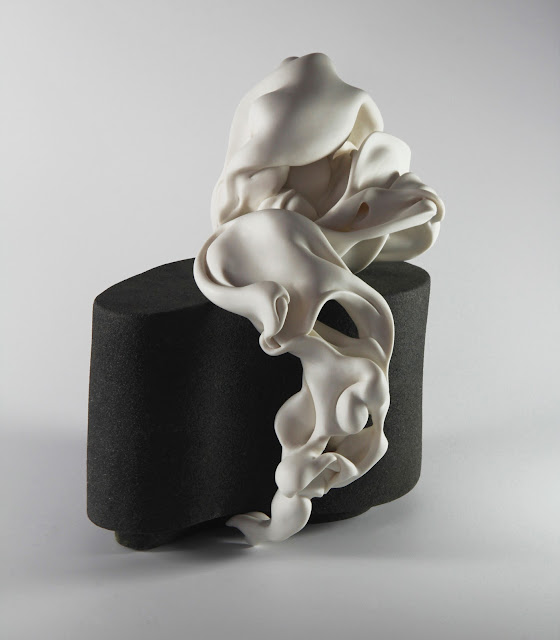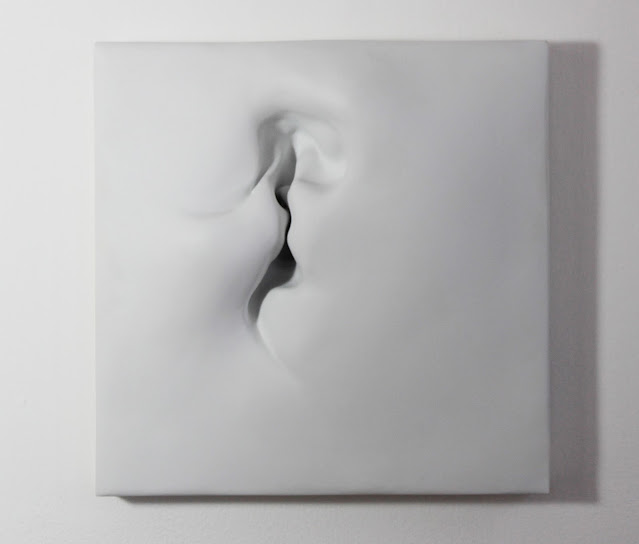Interview with artist Sharon Brill
Artist Sharon Brill was born in Israel. She lives with her family on the Mediterranean coast to the west having a deep need for proximity to the simple primal virgin nature. The main material she creates with is ceramic, particularly porcelain.
Her way to the ceramic substance went through various stations, most of which autodidactic through a long track beginning with the studies of visual design, in which she engages for about ten years, seven of which she ran an independent studio. We have conducted a short interview with Sharon.
What is so unique about your series of Porcelain sculptures technique?
The technique with which I work with porcelain combines potter's wheel work at first with hand work later on. I break apart shapes and restore them, add or subtract material or, take apart or put together in a manner that sometimes does not match the customary nature of the work with porcelain, for example I connect parts in different width, stretch the material to its limit, etc.
In addition, I work very intensively filling the material, during the various stages of the work using filling tools and manual filling tools with varying degrees of extreme fineness and delicacy, thus achieving the smooth appearance and the bright silky sheen that is well visible in the light. The porcelain remains exposed.
 |
| Conch 6, 11x27x14cm, 2011 |
How different is the series "Emergence' technique?
The technique in the new series combines porcelain with additional materials such as wall putty, paint, wood frames and more.
The combination of materials opened before me a different kind of options. The idea and the form dictate the choice of materials. Work with a variety of materials may allow additional intuitive and spontaneous layers to be discovered withing the process.
How important is the sea and nature in part of your inspirations and creativity translated to the art that you have created?
The sea, and nature in general provide me with mental space and full presence which are essential for me in order to create. While in nature, I feel the connection to a deep essence, a feeling that is blurred and depressed in an urban environment where I often feel sensory flooding; as if everything is too much – too strong, too noisy, way too smelly… incessant restlessness and excess stimuli…
Staying in nature, in the changing landscapes of the sea, woods or desert allows me to connect with simplicity, the natural changing movement, thus allowing new and different perspectives of the familiar, the obvious, and the emotional world. Furthermore, those primeval nature views, landscapes, sensory experiences, absorbed within me, are "recorded" in my intuitive subconscious library, these emerge and are revealed through shapes, lines and movements and are reflected in my works.
 |
| Be Formed, 40x40x17cm, 2020 (Emergence series) |
What made you become a sculpture artist?
Looking back, I can see my interest and curiosity in 3D. Although I was trained and engaged in graphic design at the outset, I was always attracted to projects that included 3D such as packaging, designing pavilions for exhibitions and any other project that included planning and working in the expanse. I have always been attracted, intrigued, and challenged by the search for different perspectives, whether it's an idea or an object. What lies in the hidden place, 'on the other side', 'behind', above / below ... and how things are related and develop between them.
Beyond that, I need in an unequivocal and distinct way, creative work and creative expression, in particular creative work via hand contact, to release energy through the contact of the palms. For me, the ceramic material is perfect for this purpose, I feel that the contact with the material connects me to the spirit.
 |
| Emergence 3, 40x40x14cm, 2019 (Emergence series) |
What are your plans for the near future?
Right now, I feel at the beginning of the new series and I am curious where it would lead me to. At the beginning, the idea was to work on a wall, to use the walls as a reference area, only such work would have left the works in the studio:) therefore, I began with boards of uniform size and relatively small, and now I feel the need to expand and begin from a larger area setting and in it to precise the movement dosage and the hatching or drawing into/from an unknown depth.
But mainly, and I believe that the Corona era has sharpened and illustrated this need (at least for me) – not to plan. To linger, to be more observant, more mindful, to make more room. To work in the studio, sometimes on repetitive activity that is somewhat similar to meditative activity, which releases another grip and creates mental space, allowing something new to be discovered.
 |
| Flow 3, 26x22x18cm, 2017 |
More info:
Website: https://sharonbrill.com




